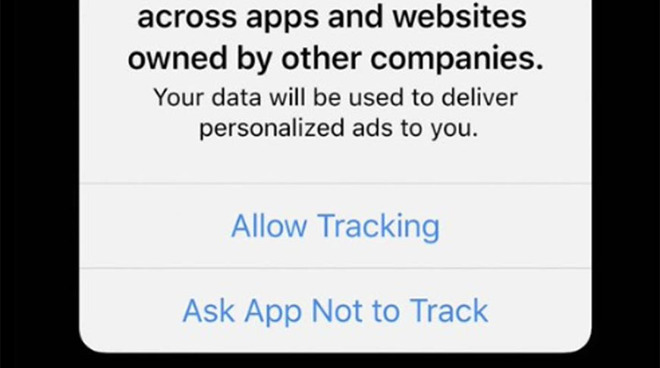Facebook says Apple's iOS 14 could hinder ad revenue
Facebook CFO David Wehner on Thursday said changes in the way Apple's iOS handles ad tracking tools will impact the social network's bottom line starting in the third quarter of 2020.

Wehner during Facebook's quarterly earnings conference call said new user privacy features set to debut with iOS 14 this fall will restrict the company's ability to target consumers and measure ad effectiveness, reports CNBC.
"We're still trying to understand what these changes will look like and how they will impact us and the rest of the industry, but at the very least, it's going to make it harder for app developers and others to grow using ads on Facebook and elsewhere," Wehner said.
Detailed in June at Apple's Worldwide Developers Conference, the upcoming iOS 14 privacy option asks users to opt-in to Identifier for Advertisers (IDFA) tracking on an app-by-app basis. IDFA numbers are used by ad servers to track user engagement without revealing sensitive data.
Currently, IDFA access is allowed across Apple's mobile platform, with users able to limit tracking in the Settings menu. When iOS 14 launches, users opening an app for the first time will be met with a permission dialogue box with two selections: "Allow Tracking" and "Ask Apps Not to Track."
Bringing tracking alternatives out of Settings and to the fore is expected to have a significant impact on IDFA data availability.
According to Wehner, Facebook expects the change to ding advertising revenue starting in the third quarter of 2020, with a more pronounced effect coming in the fourth quarter.
Facebook beat Wall Street estimates for the second quarter of 2020 with $18.7 billion in revenue, up 11% year-over-year.

Wehner during Facebook's quarterly earnings conference call said new user privacy features set to debut with iOS 14 this fall will restrict the company's ability to target consumers and measure ad effectiveness, reports CNBC.
"We're still trying to understand what these changes will look like and how they will impact us and the rest of the industry, but at the very least, it's going to make it harder for app developers and others to grow using ads on Facebook and elsewhere," Wehner said.
Detailed in June at Apple's Worldwide Developers Conference, the upcoming iOS 14 privacy option asks users to opt-in to Identifier for Advertisers (IDFA) tracking on an app-by-app basis. IDFA numbers are used by ad servers to track user engagement without revealing sensitive data.
Currently, IDFA access is allowed across Apple's mobile platform, with users able to limit tracking in the Settings menu. When iOS 14 launches, users opening an app for the first time will be met with a permission dialogue box with two selections: "Allow Tracking" and "Ask Apps Not to Track."
Bringing tracking alternatives out of Settings and to the fore is expected to have a significant impact on IDFA data availability.
According to Wehner, Facebook expects the change to ding advertising revenue starting in the third quarter of 2020, with a more pronounced effect coming in the fourth quarter.
Facebook beat Wall Street estimates for the second quarter of 2020 with $18.7 billion in revenue, up 11% year-over-year.

Comments
FaceBook is pathological. Cutting off its money is an absolute good.
I was gonna say this. Everything Apple does will be "anti-competitive". Companies think they're entitled to Apple's success.
If the moderators allow me, you're the smegma of the internet.
If I get banned, I see that AppleInsider is your agent of extreme lies.
Sorry AppleInsider. It's quite logical. I've had it with facebook.
We have phones whether they're landlines or cells, and we're subject to unsolicited calls at any time to sell us crap, whether we're in the market or not. Adding insult to injury, we pay for the privilege of getting spam on our cellphones.
It's taken years to get some meager help from legislation. We get no-call list with toothless penalties and enforcement and almost no actual relief, except on rare occasions. Violators spoof phone numbers, and telcos offer pitifully, woefully little assistance.
And Zuck wants to do and is doing the same to our browsing experience. On the flip side, infrastructure costs money. With a major drop in ad revenue, we'll end up paying one way or another.